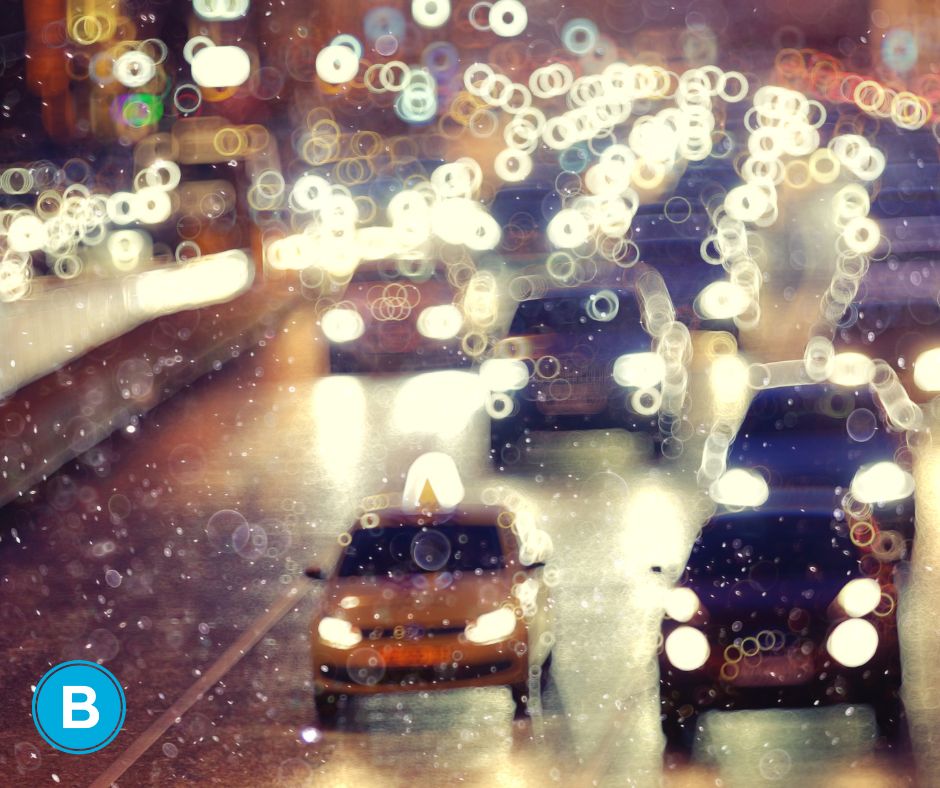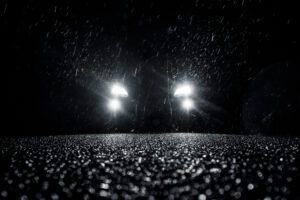
It’s inevitable: at one point or another you will end up driving at night. Many drivers dread the thought of navigating roads in the dark, and for good reason. Driving in the dark is notoriously dangerous and nighttime car accidents are commonplace.
Why is nighttime travel more dangerous than daytime driving?
While they are many factors that go into accident statistics, some of the top causes of nighttime car accidents include:
- excessive glare and lights “blinding you” while behind the wheel
- lack of road visibility
- fatigue, lack of focus, and/or falling asleep at the wheel
- speeding
While you can’t completely eliminate the risks that come with driving at night, you can take measures to protect yourself (and others) while behind the wheel.
If you’ll be driving at night, keep these ideas in mind:
- Get rid of glare. Glare doesn’t just come from oncoming traffic. Your rearview mirror can be a significant source of glare, as can a dirty windshield. Even your dashboard lights can cause problems! Give your eyes a break and dim dashboard lights to reduce glare, appropriately angle your rearview mirror, and clean your windshield (inside and out) with a glass cleaner at least once a week. These measures can help minimize glare and make your nighttime driving more comfortable…and safer!
- Line up your lights.Failing to properly clean, maintain, and angle your headlights can limit visibility when driving in the dark. Keeping headlights clean, and changing out bulbs, is an important part of car maintenance. If you notice the lights still aren’t illuminating the road ahead, double check to make sure you’ve aligned the lights correctly.

glowing car headlights at night in the rain
- Don’t push your personal limits. Driving at night frequently means driving when you’re tired. Never attempt to “push through” when you start to feel drowsy. Exhaustion behind the wheel means longer response times, eye strain, lack of focus, and a higher chance of nighttime car accidents. This is a deadly recipe, especially if you end up nodding off while on the road. If you start to feel sleepy on your trek, don’t assume that coffee, candy, or an energy drink will remove the risk. Instead, make time to pull over in a safe, well-lit area and let yourself nap long enough to give your eyes, mind, and body a break. It’s better to arrive alive, even if you’re a few minutes later than you planned.
- Follow the speed limit. Speeding during any hour is a dangerous, unnecessary risk. Never put your life on the line just to save a few minutes of your commute. Speed limits are there for a reason, and failing to heed them can have deadly consequences.
If you’ve been injured in a nighttime accident, Look to Brooks.
Many of the local highways in Central Florida are especially dangerous at night, and we frequently hear from victims who have been injured due to reckless or negligent actions of other drivers. If you or someone you love is suffering following a nighttime car accident that wasn’t their fault, the team at Brooks Law Group is here to help. We represent those who can’t stand for themselves, and we fight for the justice and compensation they deserve. You don’t have to walk the journey alone. When you don’t know where to turn after your car accident, Look to Brooks. Schedule your free consultation with one of our experienced and compassionate lawyers and let us take the burden of your case off your shoulders.













